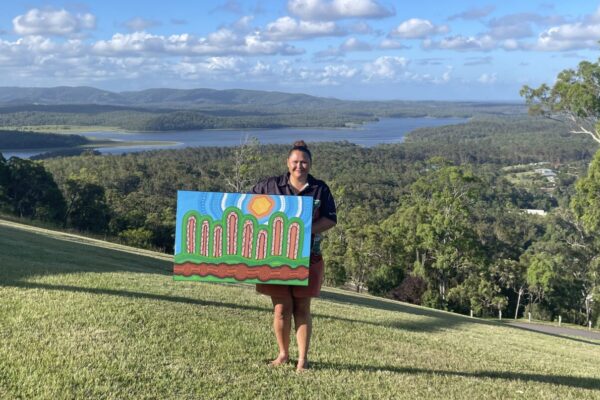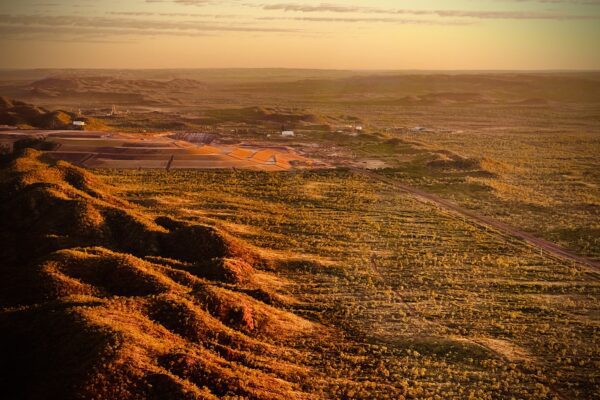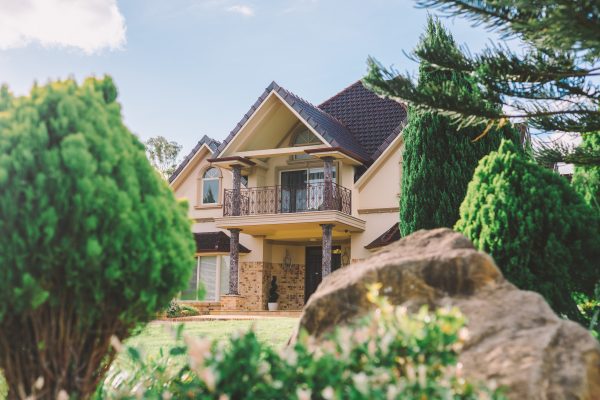While en route taking part in the Outback Air Race (an aviation time-trial through the remote Australian outback to raise funds for the Royal Flying Doctors Service), The Banyans CEO, Ruth Limkin, shares her insights surrounding the access to rural mental health services in Australia.

I’ve been thinking a lot in recent days about remote Australia and mental health. The lack of rural mental health services in outback Australia isn’t news to anyone. It’s a reflection after all of the general lack of services in outback Australia. It’s the tyranny of distance – the vastness of a nation where 72% of the population is concentrated in major cities. Flying in a 4-seater plane from Darwin to Coffs Harbour over two weeks has reminded me just how vast and ‘empty’ our nation is. I say ‘empty’ because there is life of sorts nearly everywhere, and even in the midst of dry and dusty lands can be a stunning gorge fed by underground springs. Life can spring up in hard places. It can for people too.
As the CEO of a healthcare company that supplies mental health and addiction treatment, I’m always curious about how mental wellbeing is being promoted and accessed among different groups of people. On this trip, I’m with a counsellor from Outback Futures. Our shared interest in remote psychology and rural mental health services (being supplied by Telehealth psychologists and counsellors) has filled many of our conversations.

I was struck at our first stop in Longreach. We walked into a location to buy food, and the person who welcomed us recognised the Outback Futures logo on my teammates shirt. She promptly told us she sees one of the counsellors from Outback Futures when they come into town. I was surprised at this immediate disclosure and wondered whether rural Aussies were more open about how they look after their mental health, whether by seeing a health professional face to face or through Telehealth psychology. I’ve never had that experience in the city. It intrigued me. Talking with my team-mate, she recounted that she had seen a positive shift in people acknowledging her when she is in town providing rural mental health clinics.
But it didn’t quite make sense to me as I didn’t think that rural Australians would be so different to their city cousins when it comes to talking freely about mental health or addiction. That’s not for lack of there being mental health or addiction in the community, the need is at least as great, perhaps more.
According to the National Rural Health Alliance, Australia’s mental health workforce is disproportionately under-represented in rural, regional and remote areas. They report that for every 100,000 people in major cities there are 120 psychologists. In very remote areas that number drops to just 25. There are 94 mental health nurses per 100,000 in cities, yet just 29 per 100,000 people living in very remote areas.
Added to this, or perhaps because of it, Australians who live in remote and rural areas drink more than those in the cities. In fact, Sober in the Country – a support and advocacy charity – reports that “people in the country are 150 per cent more likely to have struggled with alcohol harm and only 17 per cent will seek help”.
But providing access to services isn’t impossible. It takes intention and determination, but it’s possible. The option to have Telehealth services has become so much more accepted, with increasing take-up spurred on by Covid. It’s what led The Banyans to design treatment services delivered by Telehealth, whether for mental health or addiction, using psychologists, psychiatrists, nurses, dieticians, exercise physiologists and more. We have seen increasing take-up of Telehealth and hybrid mental health treatment programs. Our Day Programs which are non-residential, are designed to be delivered in person or via Telehealth (or a combination of both), and our The Banyans at Home Programs are purely online treatment programs.
My curiosity about this rural experience of openness to discussing mental health stayed with me for days.

Until a conversation in a creek.
I was having a refreshing swim in the most remote part of Australia I have ever visited. The other person enjoying the cool also lived in a capital city. We chatted about all kinds of things, and nothing in particular. But then I mentioned what I did and what The Banyans did and suddenly found myself deep in a conversation about family alcoholism, suicide and mental health.
That’s when I realised what the secret was to people talking about mental health so openly. It’s to be open about it ourselves.
The first person we met talked openly because Outback Futures has spent years talking openly about mental health, and she recognised that my team-mate was from Outback Futures.
The second person I had the conversation with talked openly because I talked openly about mental health and addiction.
Normalising conversations about rural mental health is as important as normalising conversations about mental health in the city and the suburbs.
As important as increasing access to treatment services for mental health and addiction – whether by Telehealth or in person – is normalising conversations about treatment. The more we normalise help-seeking, the more people seek help.
Mental health is human health. Like physical health, it exists on a continuum. In the same way we can have an ingrown toenail or a broken leg, we can have a down day or a more serious depressive episode. It’s health – and health affects us all. The more we make addiction and mental health a normal topic of conversation, the more people will feel empowered and ready to acknowledge the signs and get help early.

I am fuelled by a mission to help people experience fullness of life, and absolutely passionate about removing barriers to accessing care. This purpose is what has informed so much of what we do at The Banyans Healthcare Group.
Part of removing barriers to accessing care is the organisational and systemic growth of services for rural and suburban mental health services, such as programs and clinics – Telehealth if in person – with psychiatrists, psychologists and qualified counsellors.
The other part of removing barriers to accessing care is one we can all play a part in. It’s to make mental health and addiction a normal part of the conversation. The more we do this, the more we help shape an Australia that gets healthier – in body and mind.
If you’re living in rural or remote Australia and would like to find out more about The Banyans at Home online mental health recovery programs, call our team today on 1300 226 926.





